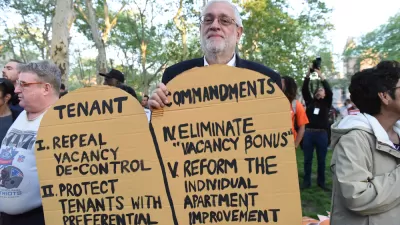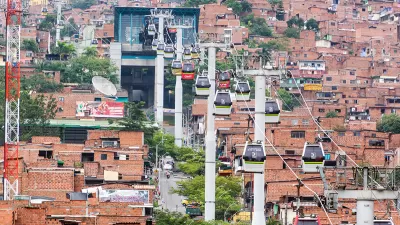Defying logic, as the world entered recession its poorest made inroads out of "extreme poverty" according to a new World Bank report. In 2009 a similar report predicted just the opposite would happen due to recession. Why the improvement?
"Extreme poverty" is defined on subsisting on less than $1.25.
According to Annie Lowrey, "The report contained a raft of statistics showing broad declines in poverty throughout the 2000s. For the first time since the World Bank started keeping statistics in 1981, poverty fell in every region of the world on a three-year timeframe. In sub-Saharan Africa, the proportion of the population living in extreme poverty fell below 50 percent for the first time. And between 1981 and 2008, poverty fell to just less than a quarter of the developing world's population from more than half."
The report cites improvement in the economies of China, Brazil and India as raising the income for their citizens, but that would not explain the major improvements in other poor areas, particularly sub-Saharan Africa, "where the proportion of people living in extreme poverty actually increased through the 1990s, before declining in the 2000s."
"Long-term changes are really starting to take hold", said Jeffrey Sachs, director of the Earth Institute at Columbia University and the United Nations' special adviser on the Millennium Development Goals, citing favorable market conditions, policies to tackle public health problems and technological change bringing tools like cellphones and Internet connections to even the most remote and rural areas.
"Separately, the United Nations announced that the world had met the Millennium Development Goal of halving the proportion of people without access to safe drinking water five years ahead of its 2015 target. Between 1990 and 2010, more than two billion people gained access to improved drinking water, according to a joint report by the United Nations Children's Fund and the World Health Organization. Now, 89 percent of the world's population has that resource, up from 76 percent in 1990," notes Lowrey.
FULL STORY: Dire Poverty Falls Despite Global Slump, Report Finds

Alabama: Trump Terminates Settlements for Black Communities Harmed By Raw Sewage
Trump deemed the landmark civil rights agreement “illegal DEI and environmental justice policy.”

Study: Maui’s Plan to Convert Vacation Rentals to Long-Term Housing Could Cause Nearly $1 Billion Economic Loss
The plan would reduce visitor accommodation by 25% resulting in 1,900 jobs lost.

Planetizen Federal Action Tracker
A weekly monitor of how Trump’s orders and actions are impacting planners and planning in America.

Restoring Northern India’s Himalayan ‘Water Temples’
Thousands of centuries-old buildings protect the region’s natural springs and serve as community wells and gathering places.

Milwaukee to Double Bike Share Stations
Bublr Bikes, one of the nation’s most successful, will add 500 new e-bikes to its system.

DC Extends Application Window for Outdoor Dining Permits
District restaurants will have until the end of November to apply, but businesses with permits in rush hour parking lanes must end operations on July 31.
Urban Design for Planners 1: Software Tools
This six-course series explores essential urban design concepts using open source software and equips planners with the tools they need to participate fully in the urban design process.
Planning for Universal Design
Learn the tools for implementing Universal Design in planning regulations.
Caltrans
Smith Gee Studio
Institute for Housing and Urban Development Studies (IHS)
City of Grandview
Harvard GSD Executive Education
Toledo-Lucas County Plan Commissions
Salt Lake City
NYU Wagner Graduate School of Public Service





























